The pursuit of happiness: Meet the queer spirits chasing higher rainbows
The Queer Spirit Festival takes place in Northamptonshire from August 14 to 18
By Steve Brown
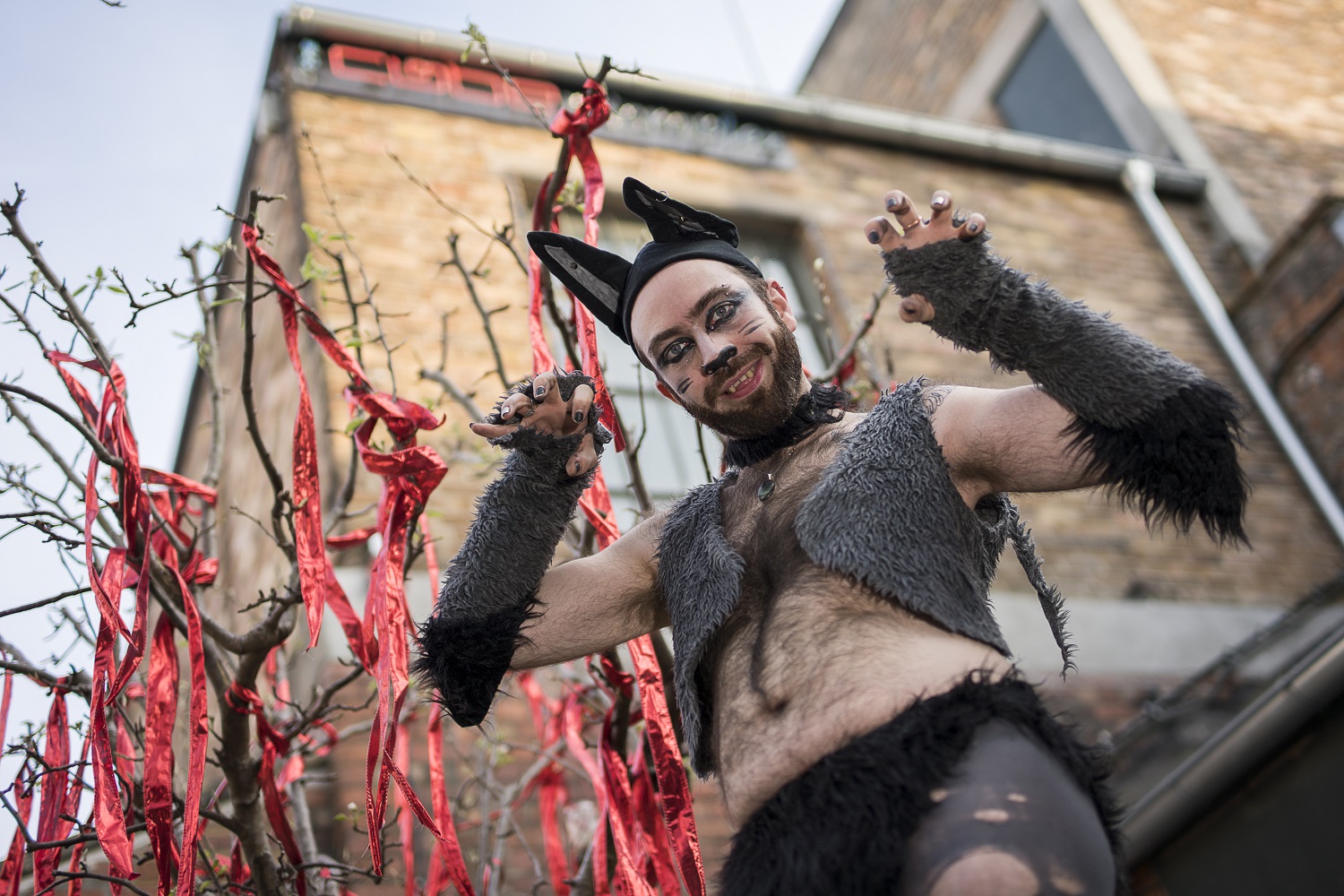
This issue first appeared in Attitude’s June issue, 309
In a world that can feel increasingly secular, with fewer people subscribing to traditional organised religions, there are those who are turning towards spirituality to find happiness, peace and purpose.
In our June issue, photographer Mike Kear shared his experience of foregoing standardised religion and rejecting his accepted beliefs about life and living, and how attending Queer Spirit Festival opened him up to a network of others with their own set of views.
“I think I will always be a sceptic, but no longer a cynic,” he says. “I often giggle at myself, thinking how my younger self would look at me now: having an interest in paganism and astrology, hugging trees, going on shamanistic journeys…”
Ahead of the festival’s return to Northamptonshire from 14-18 August, here are some snapshots of the lives and beliefs of 11 other queer spiritualists Mike has met during his mind-expanding journey.
Tom Cowan aka Wood Pigeon
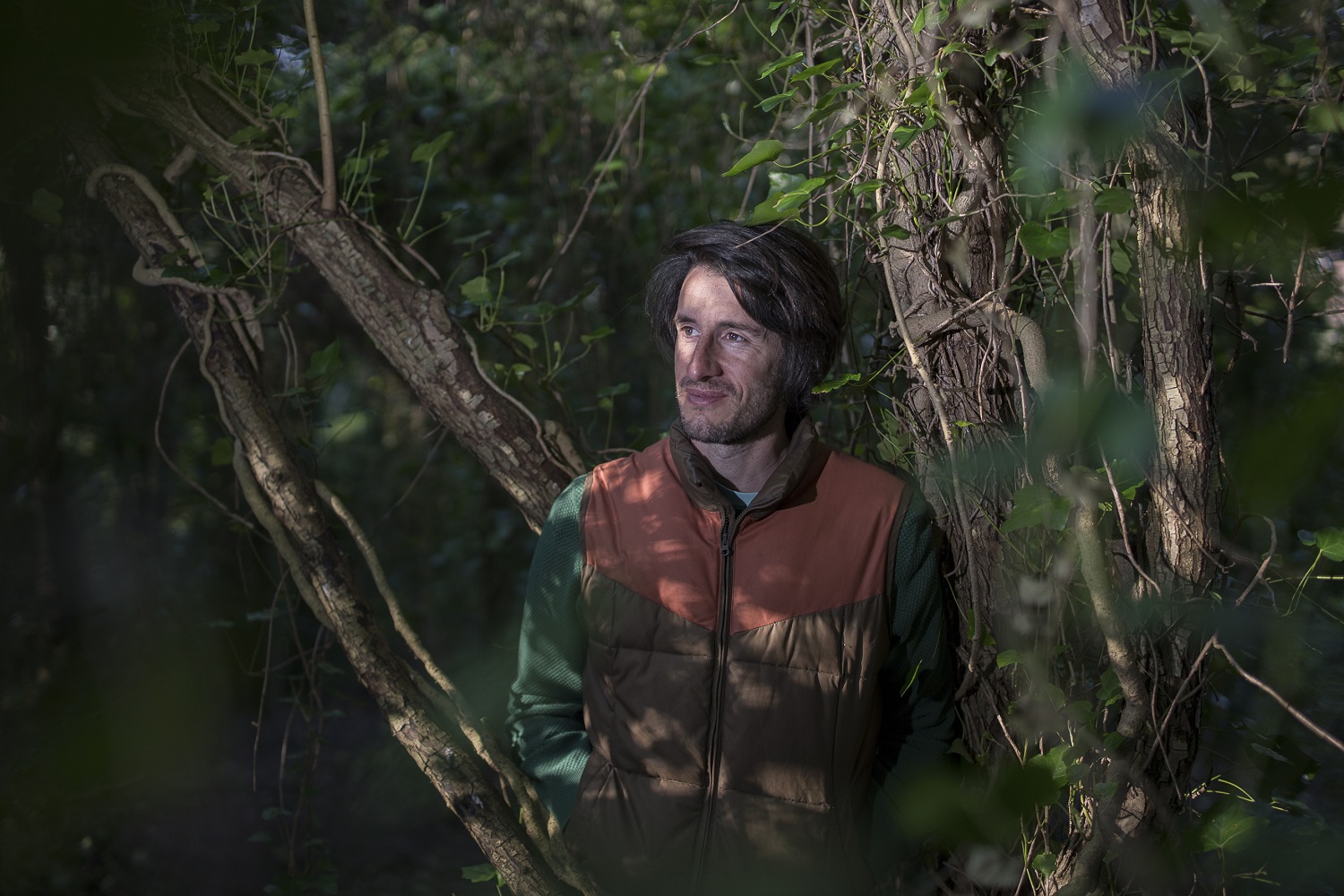
How did you formulate your spiritual beliefs?
I studied with the Vajrasati Yoga Community in Brighton and continue to learn with them. The practice of yoga clears the fog of confusion, helps me feel less scattered and more here.
I’m out in nature most days near my home on the edge of Brighton enjoying the experience of wandering around, sitting and observing. Nature is a great teacher.
I’ve taken a lot of wisdom from observing life and decay, learning to let go, making rituals in the woods and taking friends there to enjoy the peace.
Being in queer community spaces has shown me how many different approaches there are to spirituality and that I can only be what is true for me.
I can’t adopt someone else’s version of it. So being authentic and finding a way to belong to myself has been a big journey.
How does your spirituality align with your sexuality?
I came out at 25. I’m 38 now and it’s taken a long time to heal the wounds of being a gay man in a society that stigmatised my sexual identity.
The choices I’ve made to practice yoga, study nature connection and connect with Radical Faerie tribes has been in response to the challenges I’ve faced. I’m joyfully single, learning to love and be kind to myself.
I like polyamory. It requires an extra layer of communication; truth, transparency, boundaries and dialogue.
Quincy Julien
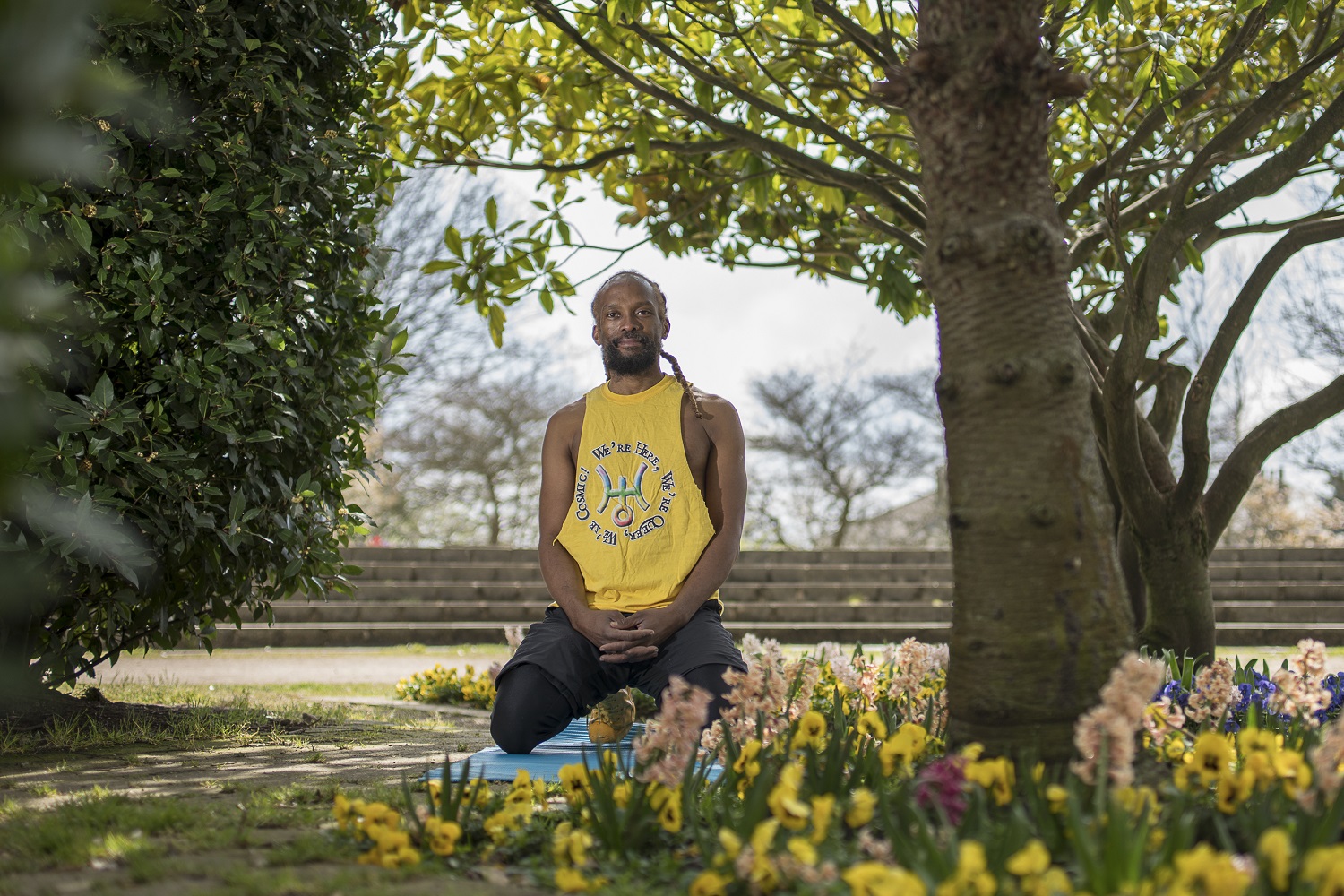
What does your spirituality offer you that Christianity didn’t?
Christianity felt both restricting and confusing — I had what I considered as the chore of having to go to church regularly, also to guiltily confess my sins, and repeatedly recite a generic mantra/prayer using a rosary, or else I’d go to hell.
But once I’d done these things I was free to behave anyway I wanted.
My spirituality affords me a greater opportunity to take responsibility for my actions; I am aware that everything I do is connected and has consequence.
What’s been the most life-defining spiritual experience that you’ve had?
Still being alive today after being diagnosed with HIV in 1986.
Do you believe in karma?
Yes, absolutely. When you live long enough, you realise that the things you do have echoes that you may hear at some point in the future, if you listen closely enough.
Chris Hubley

How did you formulate your spiritual beliefs?
When I was a teenager I was going through some difficult times, including coming to terms with being transgender and beginning my transition.
I was questioning who I was and my place in the world and looking for ways to process what I was going through. This, as well as my involvement with anarcho-queer communities in the mid Noughties, led me to start attending Queer Pagan Camp, where I learned a lot about different ways of doing magic and ritual, and had some pretty amazing experiences.
These included Trance Dances, shamanic journeys, and powerful group ritual.
I was initially drawn to Shamanic, Hermetic and Kabbalistic traditions and practices, which have very complex and beautiful cosmologies that I spent several years studying enthusiastically.
However, a few months ago I became interested in Quakerism and started attending meetings.
Although Quakerism comes from Christianity, it’s a religion without any dogma. There are no priests or leaders, and worship involves sitting in silence until someone feels moved to stand and minister to the group.
I find this a very powerful practice, particularly as it’s about just creating space for whatever may arise rather than going into it with a specific intent or expecting a certain outcome.
Amanda Gay Love

How does your spirituality align with/inform your sexuality?
All energy is sexual energy, my sexuality is my spirituality, sensuality and desire are forms of prayer, fucking can be a way we worship.
When we start with seeing our sex and sexuality as sacred, we embody a spiritual practice that is pleasure based and sees desire as our way of tuning into something much greater.
Embracing aliveness, placing pleasure at the centre, and embodying shamelessness are key spiritual practices.
Do you believe in a god?
God is patriarchy getting in the way of something more divine.
Do you believe in good and evil?
Good and evil is yet another redundant binary used to reinforce a power structure that keeps queer folks oppressed.
Like man and woman, light and dark, right and wrong, these binaries function to keep us thinking that one thing is more worthy or worthwhile, more right or righteous than another, we internalise this mechanism of comparison, thieve our own joy and reinforce notions that we might in any way be less than mighty.
Al Head
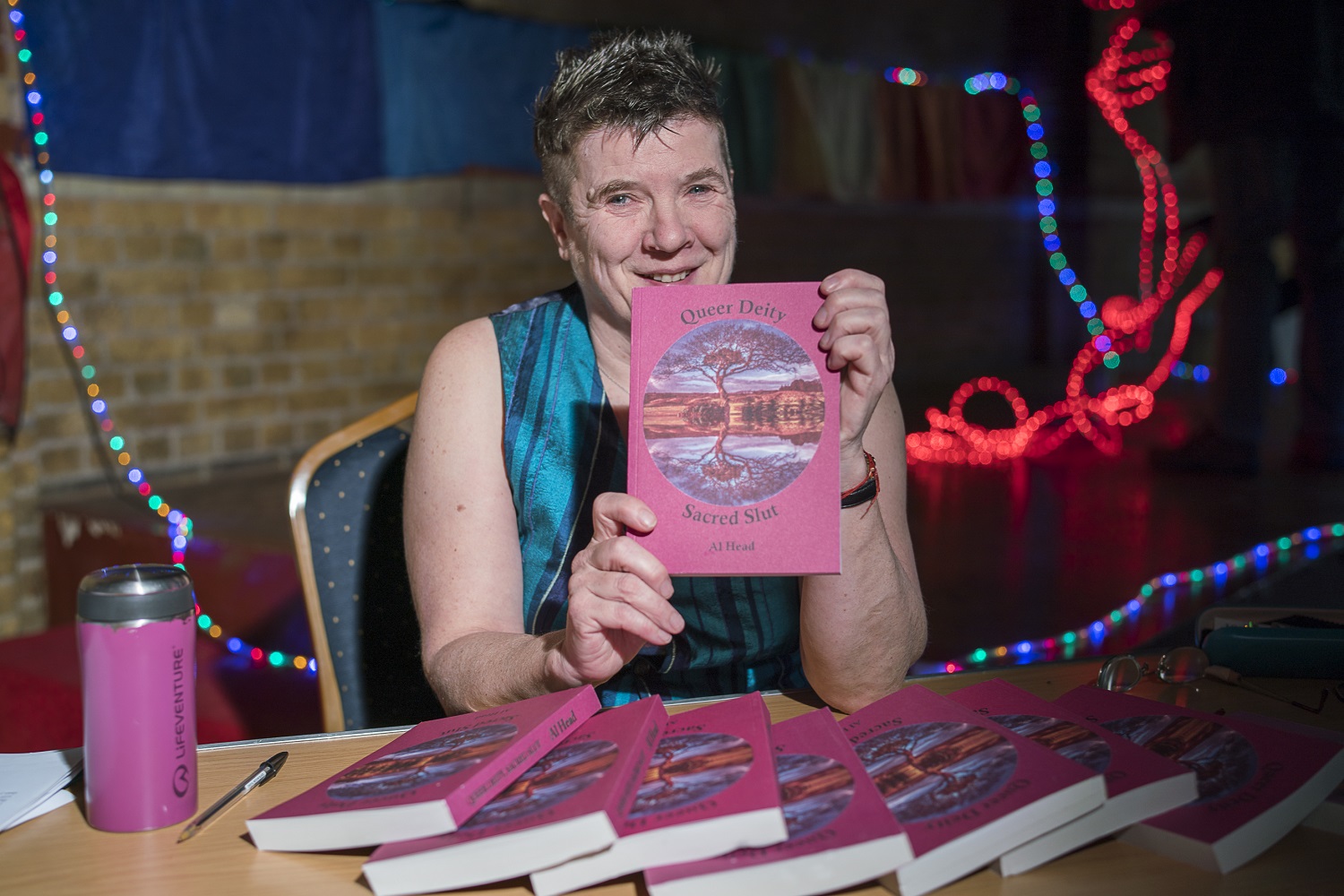
Is it difficult to maintain your spirituality in a noisy world?
It’s not the noise that’s a problem, it’s the disconnection of the majority of people in the West from their roots in the land and from any spiritual beliefs.
And the way that “the real world” is defined as anything that has no element of magic or belief.
How does your spirituality align with your sexuality?
There’s always been a strong connection between the two. My sexuality is deeply rooted in the earth, and I share sexual energy with many beings, some of them human.
My primary connection is to the earth and so I could never agree to share sexual energy with only one human.
What is the meaning of life?
I think it varies. Right now, many of us have come back to help save the planet at this time of crisis.
Nick Kientsch
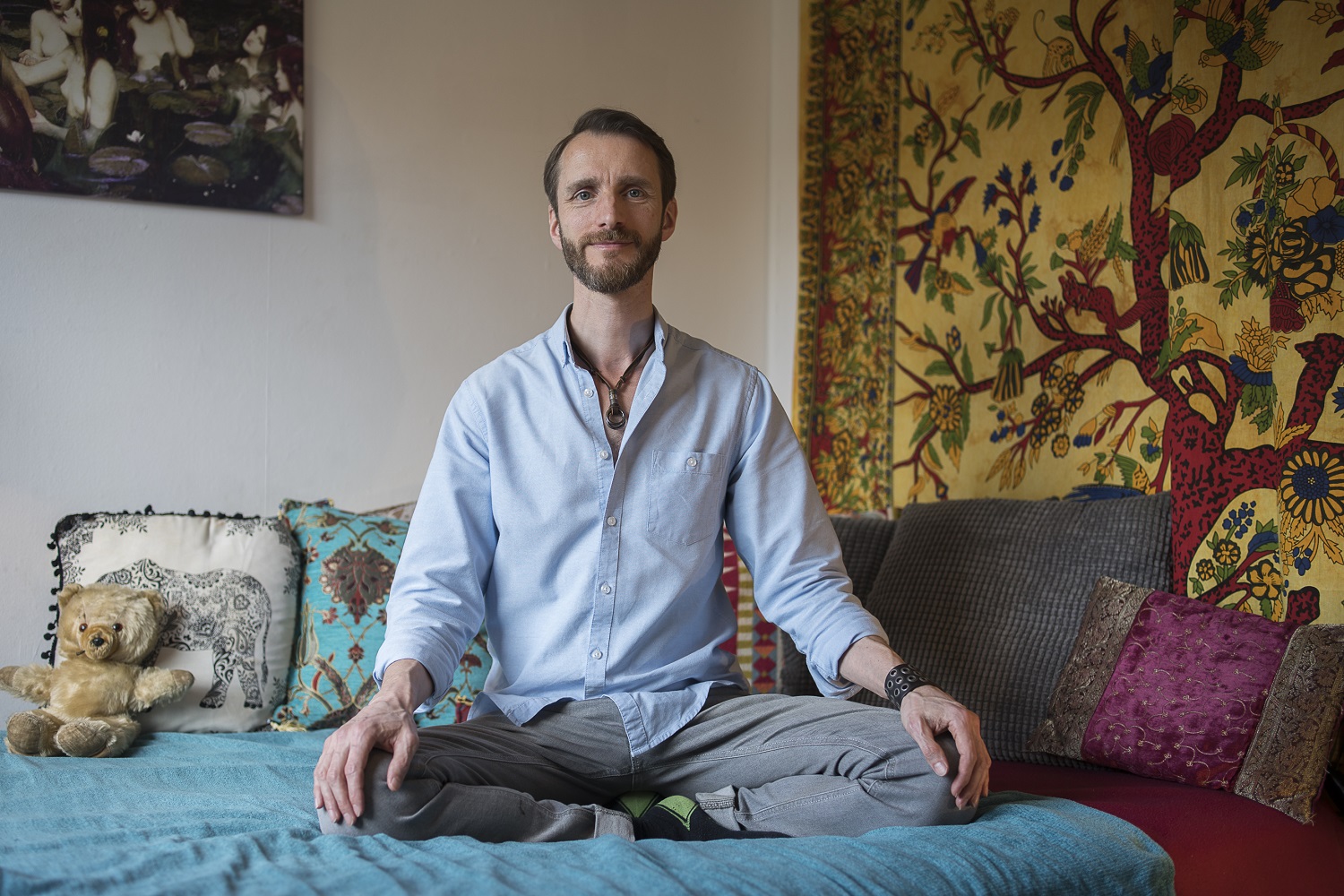
Is it possible to be materialistic as well as spiritual?
It’s often thought you need to be poor to be spiritual. Greed and attachment to things is a hindrance, but equally to attach to the idea you have to be poor to be spiritual is just another self-identity which might give rise to pride and spiritual arrogance.
Instead we can live comfortably without making the accruing of possessions or money our sole motive, noticing if attachment to possessions causes pain through a greedy holding on, rather than just welcoming things into our life before letting them go.
Sami Hillyer
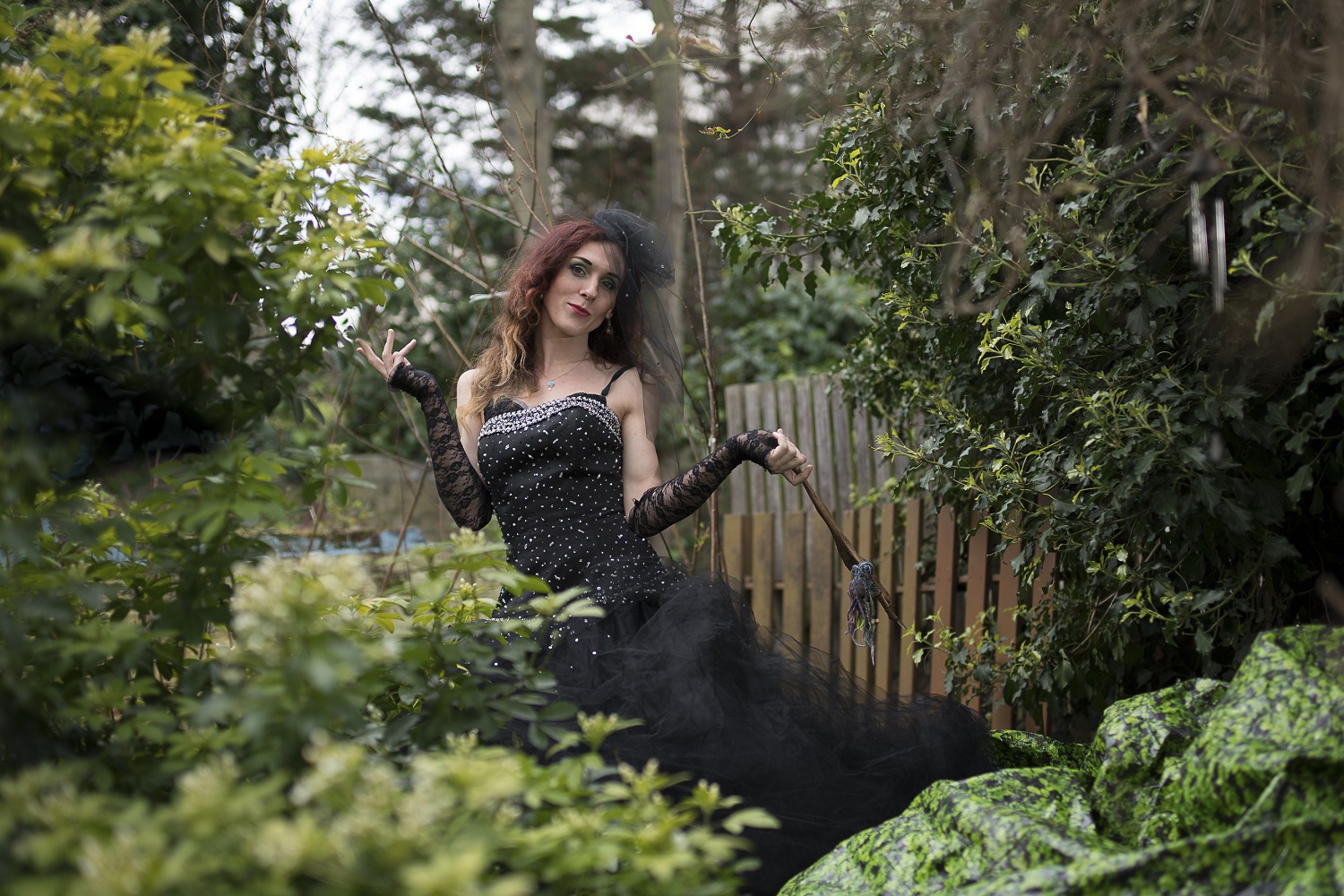
What transcendent experiences have you had?
It was my first time at Queer Spirit Festival where I realised I was trans, that what felt right for my identity wasn’t that with which I’d been living.
The freedom in the space of the festival and the welcoming and celebratory acceptance of the people around me allowed for me to step into a more comfortable version of myself.
When the festival was over and I felt I had to return to being a boy, I realised then that I was transgender, and not long after that my journey of transition began.
Nik Parmer
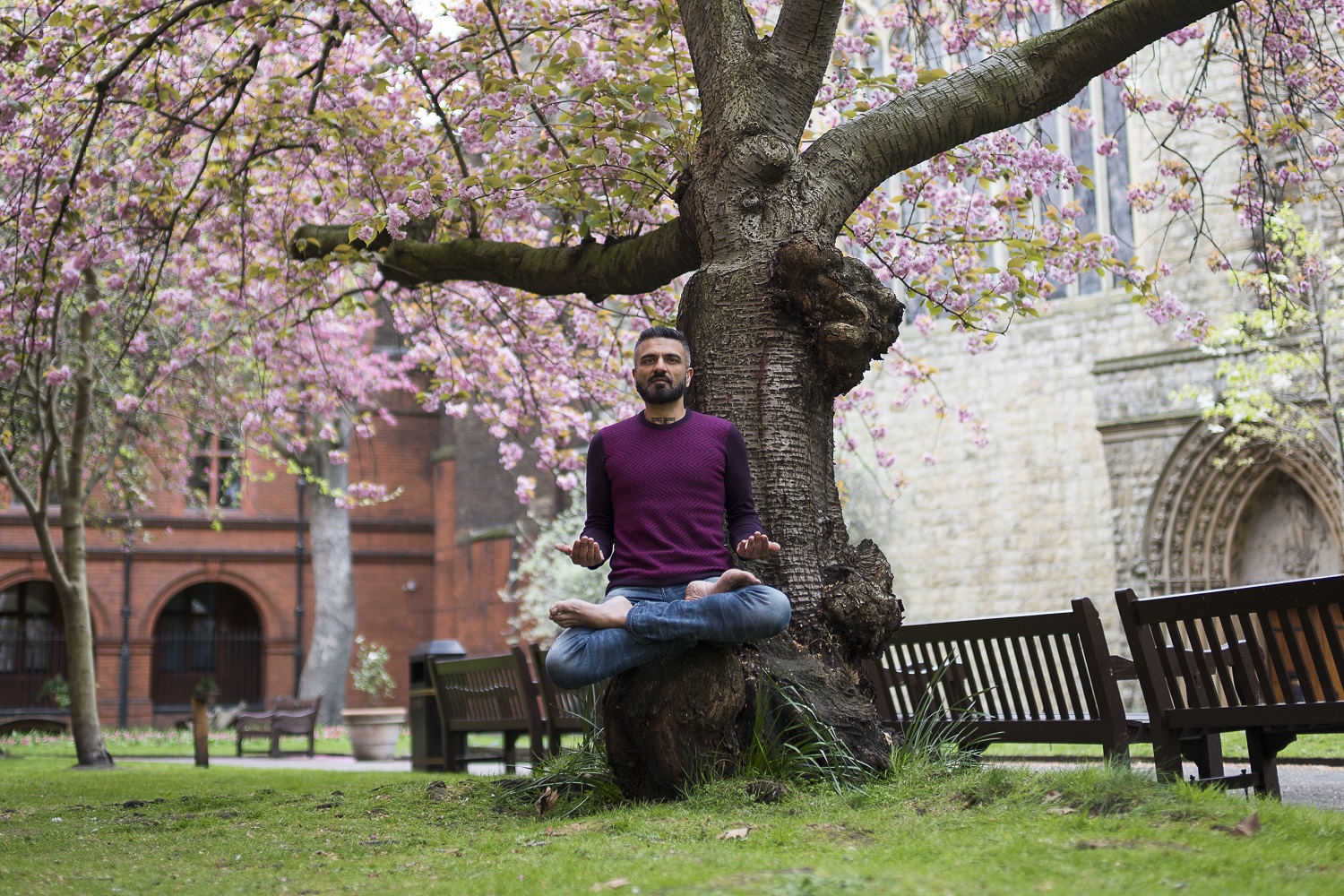
Do you think recreational drugs can help you connect with your spiritual side, or are they an obstacle?
Drugs can be used to experience higher levels of consciousness than what every-day life seems to offer.
However, spirituality can give more lasting and uplifting results. Although the power of drugs is significant, once you activate your higher nature, drugs pale in comparison.
Do you believe in a god?
To believe in God is not to know God. I don’t believe in the sun, moon, trees, rivers — because I know the sun is there, the trees are there. So, there is no question of belief; I know God is there.
Shokti
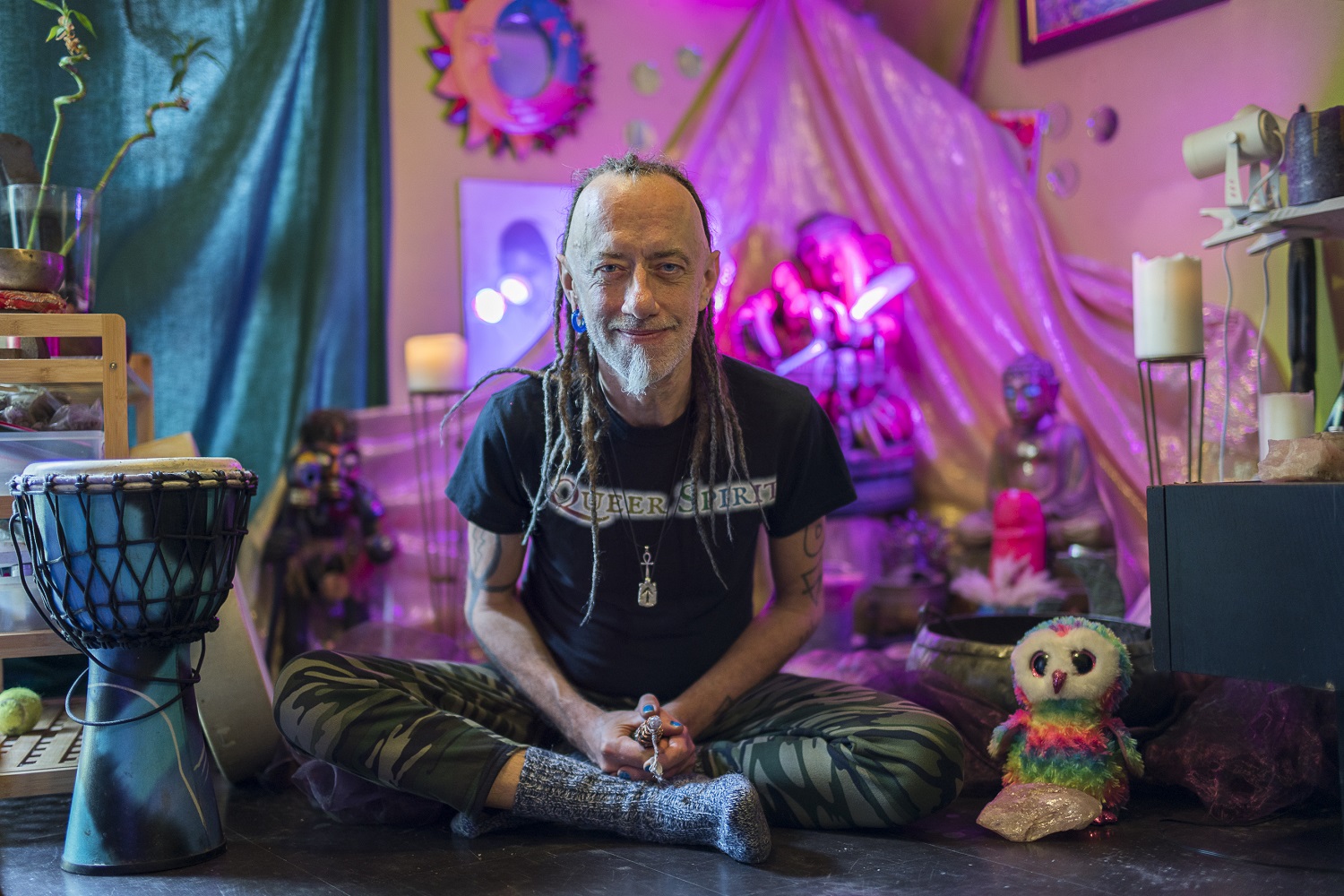
How did you spirituality help you through your HIV/Aids diagnosis?
I was a 25-year-old atheist when I was diagnosed with HIV in 1990. It was the journey I undertook to prepare myself for an early death that opened up my inner vision and brought me to spirituality.
I lived with full-blown Aids for three years — the internal connection I opened up to the spirit world helped keep my mind positive during this time, and I believe it helped keep me alive.
What does it mean to be a radical faerie? Where did they originate?
Radical Faeries are celebrating 40 years since first gathering in Arizona 1979. The first Eurofaerie gathering was in 1995 and we have been holding gatherings in the UK since 2006.
There is no single definition of faerie, but to my mind it is a movement of queer people exploring our talents, gifts, and connection to our core nature — a space for us to grow as healers, artists, priestesses of the spirit worlds, and where we can explore a heart-centred queer community that’s rooted in nature.
Miqx
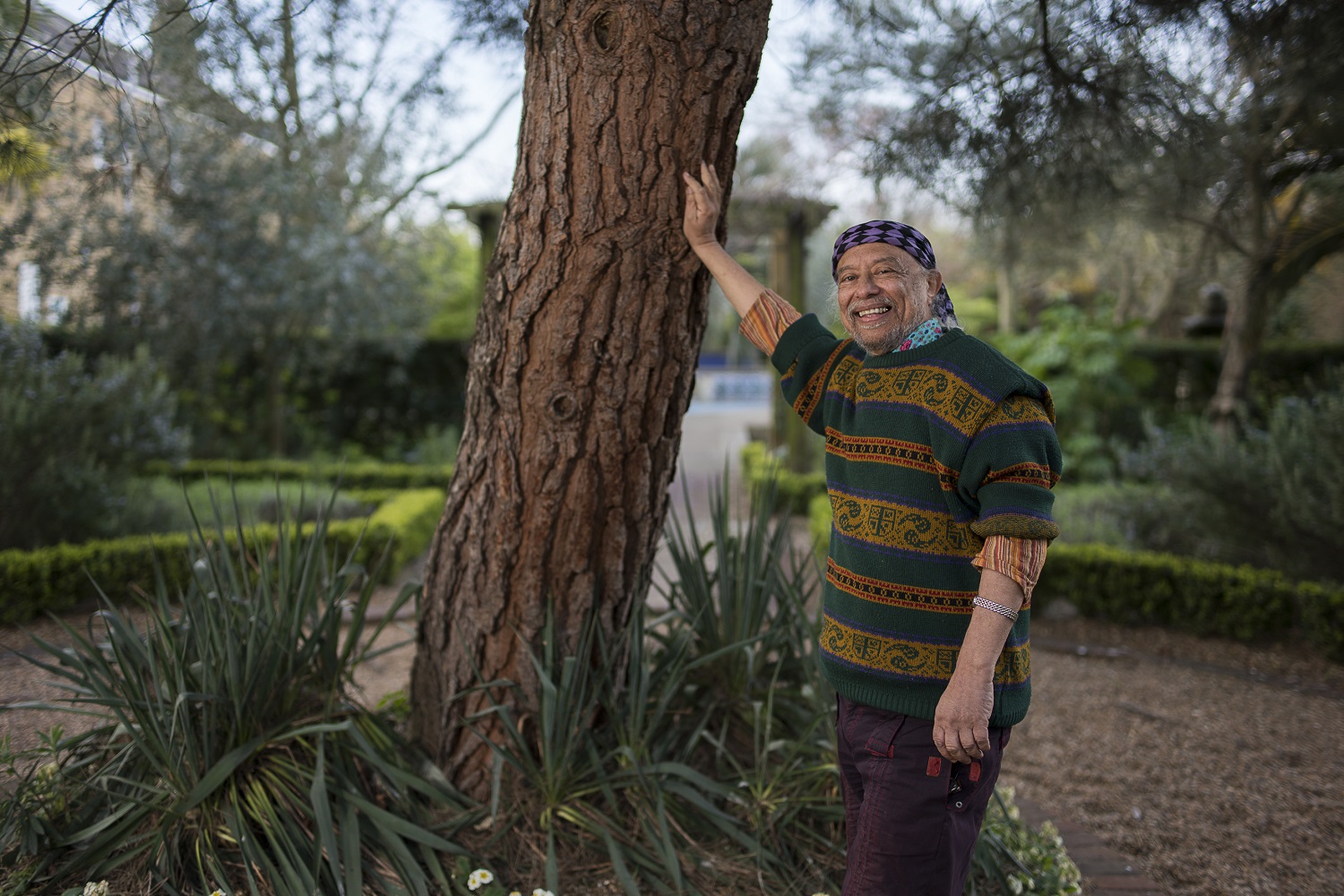
How has spirituality enriched your life?
I was born in South Africa but have lived in East London for more of my life. Now 72 and retired, I have been a queer activist since the days of the Gay Liberation Front in the 1970s and I have a passion for social justice and try to integrate this into a fully holistic view of compassionate spirituality.
Additionally, my spirituality keeps me in a life-long commitment to the co-operative movement and community-building; as social beings we find greater fulfilment in collective empowerment rather than narrow individualism.
How has spirituality contributed to your activism?
Virtually everyone asks deeper questions about life. Realising that we have a queer identity, beyond the LGBTQ mainstream, for me brings a richer understanding both of our spiritual and social position.
My awareness could not help but be informed by my birth in apartheid South Africa, in a family that had been mixed race for several generations. This gave access to many spiritual traditions as well as a profound political awareness — and so for me the two have gone together since childhood.
Rhodri, aka Queerwulf

Tell us about Queerwulf.
Queerwulf is one manifestation of the non-human side of my identity. They are a stanky, growly, cuddly feral being, who inhabits the leaf mould and soggy moss-filled crevices.
I feel a deep affinity with the beastly and the grotesque aspects of my body and soul that Queerwulf represents, and feel compelled to highlight the presence of the wild and monstrous in all human behaviour, which are the bits I feel greatest love for.
This may well stem from having a hairy, curvy body which led to a lot of reactions of disgust from people as I was growing up — being a werewolf was the only way I could make sense of my moon-addled moodiness and thick covering of fur. I’ve always experienced my body as more creature than human.
Images by Mike Kear
